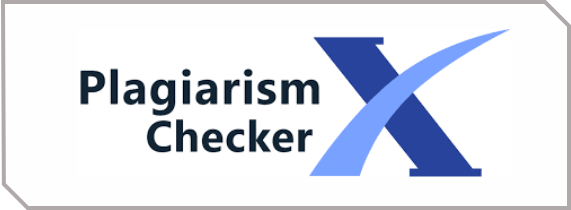| .: e-ISSN :3046-921X:. |
 |
| .: p-ISSN :3048-0302:. |
 |
| .: Kebijakan & Prosedur :. |
| Tim Editorial |
| Tim Reviewer |
| Focus and Scope |
| Peer Review Process |
| Publication Ethics |
| Author Guidelines |
| Open Access Policy |
| Archive Policy |
| Open Access Statement |
| Policy of Screening for Plagiarism |
| Journal License |
| Author Fees |
| .: Indexing :. |
 |
 |
| .: Informasi :. |
| For Readers |
| For Authors |
| For Librarians |
| .: Alat Bantu :. |
 |
| .: Template :. |
 |
| .: Contact Wa:. |
 |
| .: Visitors:. |
Author Guidelines
- The manuscript to be published to the Jurnal Silih Asah must be original, unpublished and not in the publishing process. The manuscript may be the result of research or theory review in the field of :
Jurnal Silih Asah is a peer-reviewed journal. Jurnal Silih Asah invites academics and researchers who do original research in the sciences: Ilmiah The manuscript format is prepared in Indonesian or English and written in a concise and precise manner. Manuscripts will not exceed 14 pages including references and attachments. Scriptwriting templates can be accessed and downloaded on web
- The manuscripts are arranged in the order of titles (capital letters) in Indonesian and English, author names without title and affiliation and email correspondence of author, abstract and keywords, introductions, research methods, results and discussion, conclusions and suggestions, as well as a bibliography. Sub-sections can be added as needed. Systematics of writing is not required numbering in each chapter.
- The abstract consists of 100-250 words, typed one space consisting of problems, objectives, methods, results and conclusions, written in English for the Indonesian language script as well as in Indonesian and English for English manuscripts. After the abstract should be written keywords that fit the topic of research.
- All tables and figures should be given a title in the text and numbered in Arabic numerals as well as added captions if required.
- An author wishing to submit a paper to the Jurnal Silih Asah should send it by email to web. All correspondence, including notification of the Editor's decision and requests for revision, takes place electronically.
- Article Categories: Authors must categorize their paper as part of the article information. The category which most closely describes their paper should be selected from the list below.
- Research paper. This category covers papers which report on any type of research undertaken by the authors. The research may involve the construction or testing of a model or framework, action research, testing of data, market research or surveys, empirical, scientific or laboratory research.
- Technical paper. Describes and evaluates technical products, processes or services.
- Conceptual paper. These papers will not be based on research but will develop hypotheses. The papers are likely to be discursive and will cover philosophical discussions and comparative studies of others' work and thinking.
- Case study reports. Case studies describe actual interventions or experiences within organizations. They may well be subjective and will not generally report on research. A description of a legal case or a hypothetical case study used as a teaching exercise would also fit into this category.
- Revised manuscript. The author has to revise the manuscript at least 1 month after being received from the Jurnal Silih Asah management team (first edited paper). Papers sent back to the Jurnal Silih Asah
- management team after one month are considered new submissions. Revised printed manuscripts must be re-submitted 1 week after received from the Jurnal Silih Asah management team.
- The bibliography or References are arranged alphabetically from the first and the next author. The References list only contains the references cited in the manuscript. If there are two manuscripts or more of the same author and year, mark with a, b, c, and so on after the year of publication. Consider the following example formats :
The bibliography taken from the book is written in order: author's name, year, book title (italics),
publisher name, city.
Example:
[1] Wigroho, H.Y., 2001, Frame Structure Analysis & Design Using SAP 2000 version 7.42, Andi Publisher, Yogyakarta.
[2] ACI Committee 318, 1992, Building Code Requirements for Reinforced Concrete (ACI 318-92) and Commentary (ACI 318R-92), American Concrete Institute, Detroit, Mich.
Bibliography taken from magazines/journals and research results are written in order: author's name,
year, title of article, name of journal/magazine/institution (italics), volume, page.
Example:
[1] Arfiadi, Y and Hadi, M.N.S., 2006, Continuous Bounded Controllers for Active Control
of Structures, International Journal of Computers & Structures, vol. 84, no. 12, pp. 798-807.
[2] Ervianto, W, I., 1998, Analysis of the Factors Causing Delay in Projects Construction, Research Report Atma Jaya University Yogyakarta, Yogyakarta.
Bibliography Taken from the Internet there are several ways of writing.
Examples:
[1] Brown, R., Shukla, A. And Natarajan, K.R., 2002, Fiber Reinforcement of Concrete
Structures, accessed 30 October 2006, http://www.uritc.uri.edu/media/finalreportspdf/536101.pdf.
[2] Shell Structures: Basic Concepts, accessed 10 November 2006, http://www.colorado.edu/engineering/CAS/courses.d/AFEM.d/AFEM.Ch29.d/AFEM.Ch29.pdf
10. Script submission:
Manuscripts are sent to the Secretariat of the Saturnus : Jurnal Teknologi dan Sistem Informasi,
Asosiasi Teknik Elektro dan Informatika Indonesia
Alamat: Perum. Cluster G11 Nomor 17, Jl. Plamongan Indah, Kadungwringin, Kedungwringin, Pedurungan, Semarang City, Central Java 50195. Manuscripts must be submitted in hardcopy and softcopy (file) form. Hardcopy can be sent by post or courier service. Meanwhile, softcopy of paper is recommended to be sent by e-mail. When sending by e-mail cannot be done, it can be replaced by sending files on a CD via postal or courier service. Manuscripts are typed in the word processing program Microsoft Word.
Manuscripts are attached with name, address, telephone and fax numbers and e-mail address completely and completely clear for correspondence.
11. The content of the writing is beyond the responsibility of the editor. Editors have the right to do editorial editing without changing the meaning.
12. The submitted manuscript will be assessed for eligibility by the Expert Editor. The author whose script published does not receive a fee but will get one copy of the journal edition along with five loose print copies.




